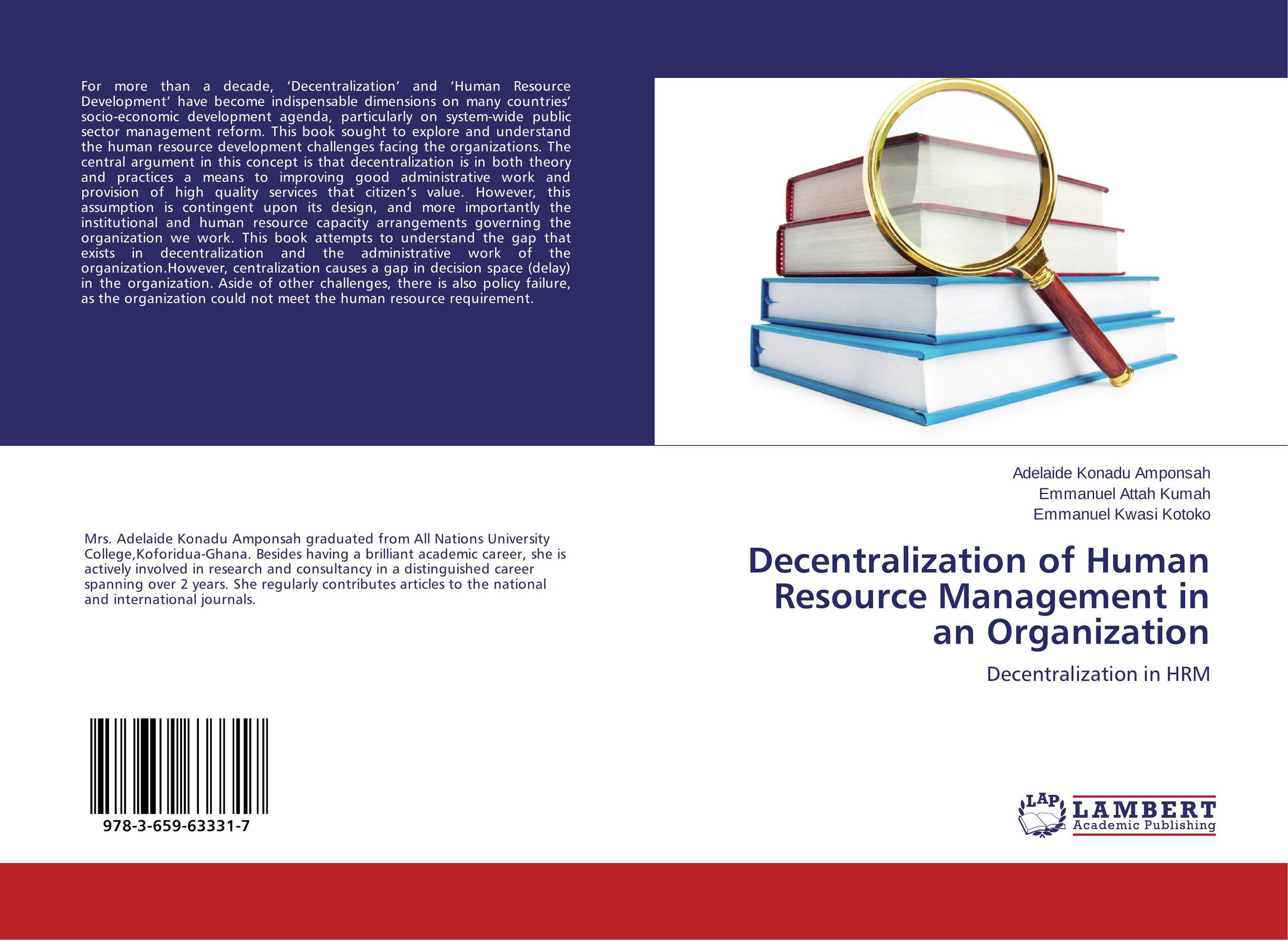| Поиск по каталогу |
|
(строгое соответствие)
|
- Профессиональная
- Научно-популярная
- Художественная
- Публицистика
- Детская
- Искусство
- Хобби, семья, дом
- Спорт
- Путеводители
- Блокноты, тетради, открытки
Decentralization of Human Resource Management in an Organization. Decentralization in HRM

В наличии
| Местонахождение: Алматы | Состояние экземпляра: новый |

Бумажная
версия
версия
Автор: Adelaide Konadu Amponsah,Emmanuel Attah Kumah and Emmanuel Kwasi Kotoko
ISBN: 9783659633317
Год издания: 2014
Формат книги: 60×90/16 (145×215 мм)
Количество страниц: 84
Издательство: LAP LAMBERT Academic Publishing
Цена: 23720 тг
Положить в корзину
Позиции в рубрикаторе
Сферы деятельности:Код товара: 141145
| Способы доставки в город Алматы * комплектация (срок до отгрузки) не более 2 рабочих дней |
| Самовывоз из города Алматы (пункты самовывоза партнёра CDEK) |
| Курьерская доставка CDEK из города Москва |
| Доставка Почтой России из города Москва |
Аннотация: For more than a decade, ‘Decentralization’ and ‘Human Resource Development’ have become indispensable dimensions on many countries’ socio-economic development agenda, particularly on system-wide public sector management reform. This book sought to explore and understand the human resource development challenges facing the organizations. The central argument in this concept is that decentralization is in both theory and practices a means to improving good administrative work and provision of high quality services that citizen’s value. However, this assumption is contingent upon its design, and more importantly the institutional and human resource capacity arrangements governing the organization we work. This book attempts to understand the gap that exists in decentralization and the administrative work of the organization.However, centralization causes a gap in decision space (delay) in the organization. Aside of other challenges, there is also policy failure, as the organization could not meet the human resource requirement.
Ключевые слова: decentralization, human resource management, recruitment, Selection and Centralization.



